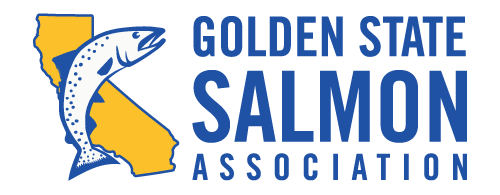Press Advisory for Friday, April 26, 12:30pm
Contact: Francis Mendoza, Land & Water Justice Manager, Save California Salmon,
Tribes and Fishing Community Hurt by the Declining Health of the Bay-Delta Watershed and Low Salmon Numbers Speak Out
Native Americans, fishing industry and conservation community talk about disastrous salmon numbers, closed fishing season and impacts to culture and livelihoods due to inaction by State Water Resources Control Board.
Who: Regina Chichizola (Save California Salmon), Nikcole Whipple (Round Valley Indian Tribes), Kate Lowry (Yurok Tribal member), K’nek’nek’ Lowry (Yurok Tribal member), Gia Moreno (Chicana and Native American grassroots activist), Scott Artis (Golden State Salmon Association), Erin Woolley (Sierra Club California)
What: Rally featuring speakers commenting on the impacts of the declining health of the Bay-Delta Watershed, drastically low salmon numbers, and California State Water Resources Control Board’s proposal to adopt exclusionary Voluntary Agreements that will not provide the water flows salmon and the watershed need.
Where: Cal EPA (California Environmental Protection Agency) Building, 1001 I Street, Sacramento, CA
When: 12:30pm, Friday, April 26
Why: The State Water Resources Control Board (SWB) is in charge of developing and implementing a water control plan for the Bay-Delta but has delayed updating this plan for decades. As part of the Bay-Delta Plan update process, the SWB is considering the adoption of exclusionary Voluntary Agreements that will not provide the water flows the watershed and salmon need and will harm the health of the Bay-Delta ecosystem and the people who rely on it. A low number of salmon predicted to be in the ocean this year has led fishery managers to recently close ocean salmon fishing for 2024 – the second year in a row.
Background: The Bay-Delta watershed covers more than 75,000 square miles and many rivers and is the largest estuary on the Pacific coast of the Americas. Native species in the Bay-Delta are experiencing an ecological crisis due to habitat conversion, degraded water quality, harmful algal blooms, reductions in flows, and the inability to access natural habitats that are blocked by dams and levees. This has led to severe decline and extinction of native fish and other aquatic species. The salmon levels have become so low that salmon fishing has been canceled in California for the second year in a row and only the fourth time in history. Climate change and frequent, unpredictable weather patterns leave the health of the Bay-Delta uncertain and especially vulnerable each year. Years of scientific studies have shown that 65% of the water in the Delta watersheds needs to stay in the rivers for clean water and fisheries.
About Save California Salmon: Save California Salmon is dedicated to policy change and community advocacy for Northern California’s salmon and fish dependent people. We support the fisheries and water protection work of the local communities, and advocate effective policy change for clean water, restored fisheries and vibrant communities. We aim to help to support Tribes and the general public in engaging with public comments related to water pollution, fisheries, and beneficial use issues. Learn more at californiasalmon.org.
About GSSA: The Golden State Salmon Association (www.goldenstatesalmon.org) is a coalition of salmon advocates that includes commercial and recreational salmon fishermen and women, businesses, restaurants, a native tribe, environmentalists, elected officials, families and communities that rely on salmon. GSSA’s mission is to restore California salmon for their economic, recreational, commercial, environmental, cultural and health values.
# # # #
